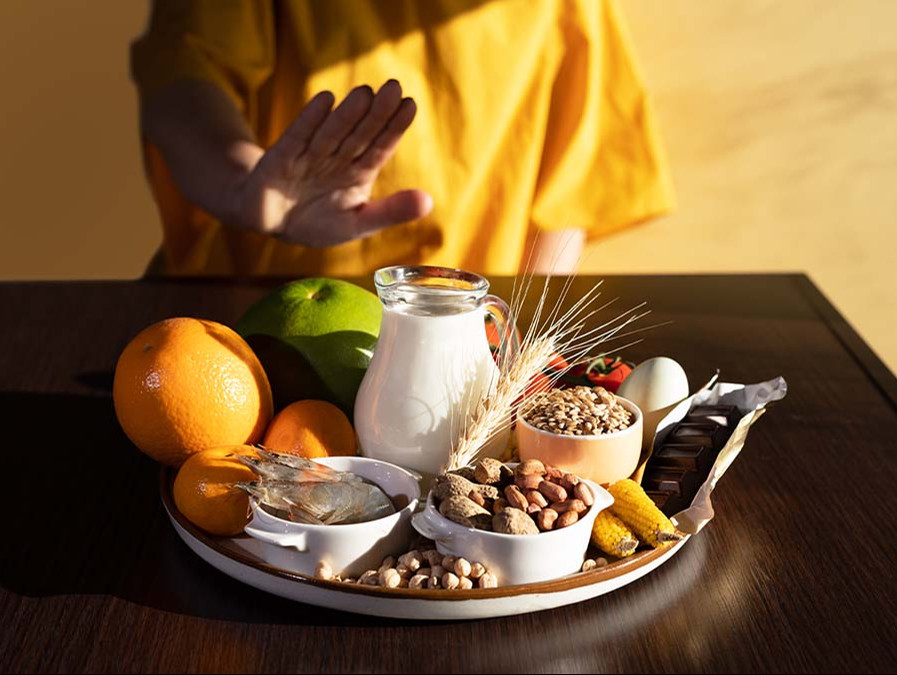
"What would you like to drink?" It's the first standard question in any restaurant. After all, liquid delights largely determine profit margins. "A glass of white wine, please," I say. My designated driver companion orders a glass of milk. Moments later, our drinks are placed on our table, accompanied by a bowl of mixed nuts, soon followed by freshly baked sesame-currant bread with herb butter. Help! There are already seven allergens on the table: sulfites, cow's milk protein, nuts, groundnuts, gluten, sesame seeds, and lupin. Does the waiter realize the risks he's exposing us to?
For starters, we order a crisp mixed celery salad with mustard dressing and a shrimp cocktail; for the main course, a vegetarian burger and a mixed fish platter. Now we've checked off all fourteen allergens that must be declared! Since 2021, the NVWA has been enforcing proper information provision. EU regulation 1169/2011, article 9(1c), article 21, and 36(3a), as well as annex 2, describe precisely how this should be done. Especially in kitchens that enthusiastically use grandma's cookbook and obscure spice blends, unhindered by any sense of food safety, things go wrong. The costly legal liability that can result from a hospital admission is often completely overlooked. Meanwhile, we too are left without any allergen information.
This isn't an exception. Allergen information in the hospitality industry is scarcely provided. Occasionally, there's a sign asking customers to specify dietary and allergen preferences. Very occasionally, the staff claims to know what allergens are. Perhaps they've seen a picture once. Many believe that general allergic reactions are just some red spots and itching. If only that were true. True allergies are no joke. Within minutes, a victim's throat can swell shut and/or their blood pressure can plummet, leading to anaphylactic shock. This can be immediately life-threatening. Those who react this severely often carry an EpiPen (the adrenaline injection narrows the blood vessels and raises blood pressure).
Dietary preferences complete the picture, causing stress not just in the hospitality sector but also in the meal industry. Vegetarian, vegan, kosher, halal, low-carb, low-fat, low-sodium, high-protein, paleo, ketogenic, dash, Mediterranean, Nordic; I could go on and on. Sure, some arise out of necessity: to lose weight, lower blood pressure, or because of a life conviction. Most, however, are the result of social contagion driven by influencers, friends, and celebrities. It wouldn't surprise me if food technologists get itchy just thinking about this, though their blood pressure is more likely to rise than fall.
Everyone should do as they please. But let the food industry focus on what's truly important: producing healthy, safe food (and labeling it accurately and comprehensively).
Remember: the easiest diet is that of the total abstainer, who also stops consuming E948 (oxygen). A person's wealth is proportional to the number of things they can do without.
IJsbrand Velzeboer
Source: Vakblad Voedingsindustrie 2023